80th Anniversary of the Battle of Britain
Today is the 80th anniversary of the Battle of Britain. The 15th of September is the official day of remembrance, even though this battle of the skies raged on from July to October of 1940.
The Battle of Britain was a major air campaign fought over southern England, where Germany planned to gain air superiority in preparation for an invasion of Great Britain. The pilots of RAF Fighter Command, flying iconic aircraft including the Hurricane and Spitfire, were supported by a vast network of ground crew during the battle.1
Ultimately, though, the Luftwaffe was defeated by Fighter Command, forcing Adolf Hitler to abandon his invasion plans.1
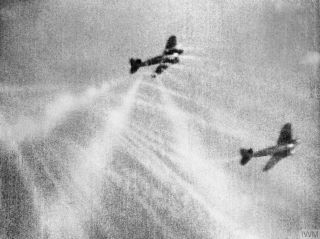
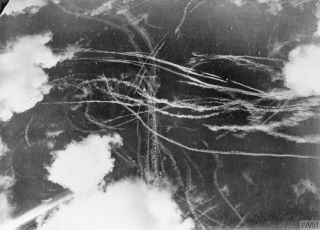
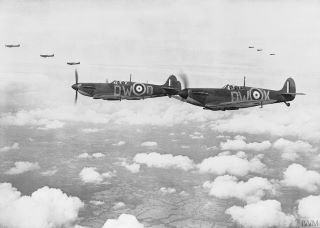
Today we commemorate the bravery, courage and endurance of the airmen, called "The Few" by Winston Churchill, who “scrambled” night after night to defend the British skies.
Nearly 3,000 men of the RAF took part in the Battle of Britain. While most of the pilots were British, Fighter Command was an international force. Men came from all over the Commonwealth and occupied Europe – from New Zealand, Australia, Canada, South Africa, Rhodesia (now Zimbabwe), Belgium, France, Poland and Czechoslovakia. There were even some pilots from the neutral United States and Ireland.1
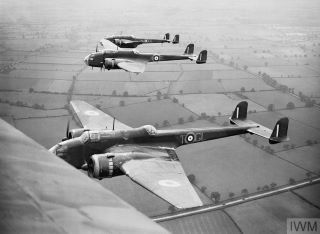
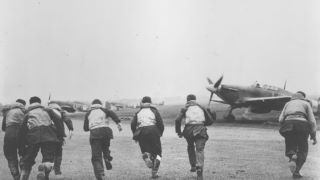
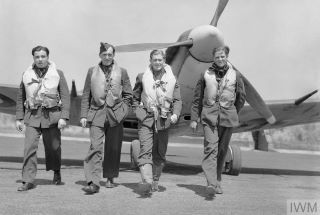
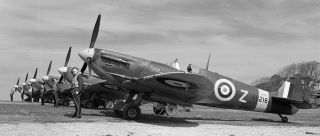
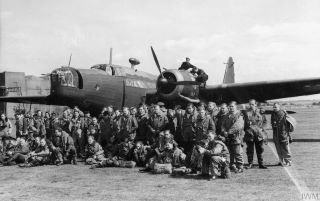
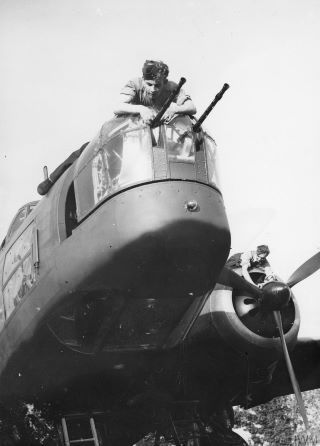
We also remember the huge effort on the ground to support the defence of Britain. Ground crew looked after the aircraft. Factory workers helped keep aircraft production up. The Observer Corps tracked incoming raids, with over 1,000 observation posts continuously manned. Members of the Women’s Auxiliary Air Force (WAAF) served as radar operators and worked as plotters, tracking raids.... just to name a few of the vital roles undertaken by "The Many."
The Local Defence Volunteers (later the Home Guard) had been set up in May 1940 and by July, nearly 1.5 million men had enrolled.1
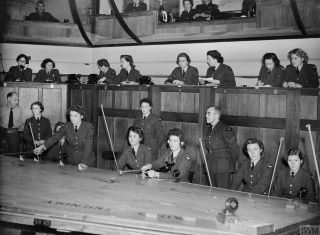
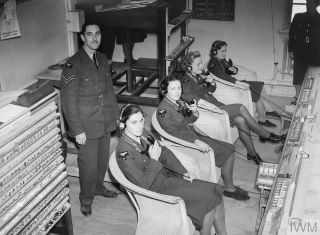
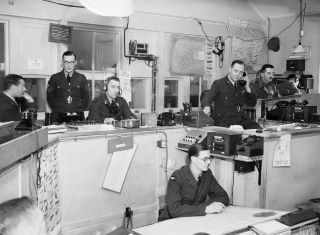
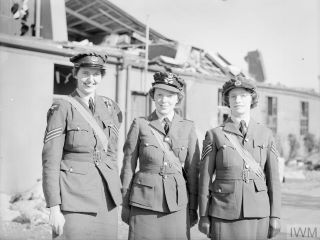
So why was the Battle of Britain important? Victory in the Battle of Britain did not win the war, but it made winning a possibility in the longer term.1
For those of you that like the numbers, casualties and losses of the Battle of Britain are given by Wikipedia as:
- UK and its allied forces: 1,542 killed, 422 wounded, 1,744 aircraft destroyed.
- Germany and its allied forces: 2,585 killed, 735 wounded, 925 captured, 1,977 aircraft destroyed.
- Civilians: 14,286 killed and 20,325 wounded.
It is a testament to the bravery, courage and endurance of those airmen, and the collective co-operation and endurance of thousands on the ground in supporting them, that the concerted efforts of all involved eventually resulted in victory. It was a turning point in the war.
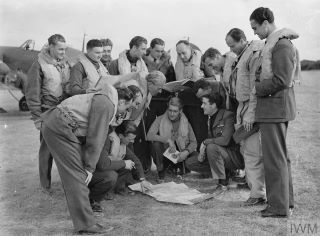
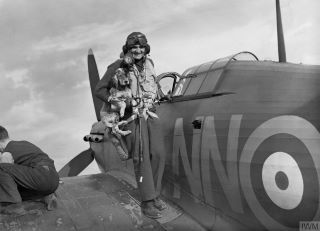
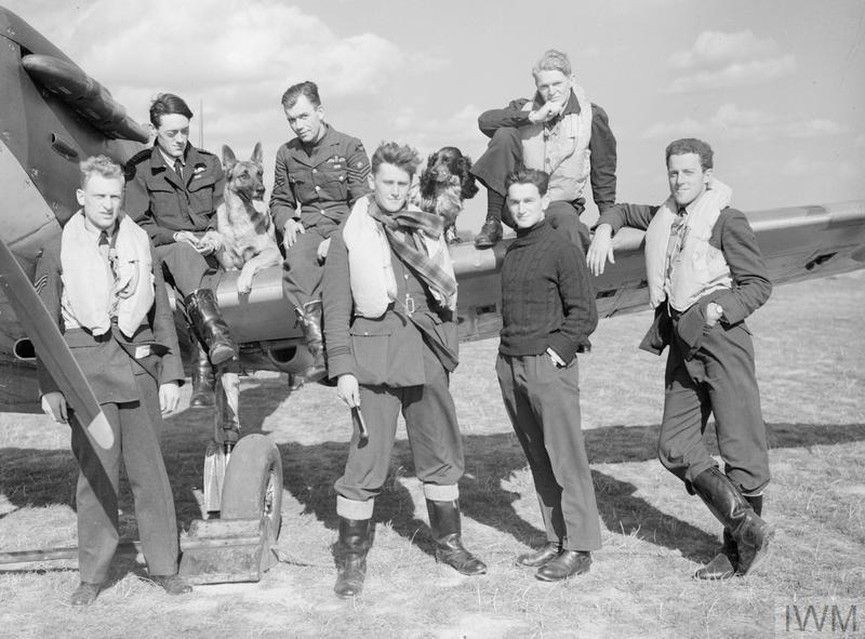
There were a number of war artists who recorded the Battle of Britain, including Paul Nash, Graham Sutherland, Carel Weight, Anthony Gross, Richard Eurich and Eric Kennington. There were also a number of women artists, including Laura Knight, Doris Zinkeisen, Eve Kirk, Olga Lehmann, Rachel Reckitt, Mary Viola Paterson, Enid Abrahams, Elva Blacker, Elsie Gledstanes and Lilian Buchanan.
However, today I have chosen to show you some of the paintings by Mark Bromley, a contemporary British artist, born in 1960, and currently living in Surrey. He has worked for BAE Systems, British Aerospace and Hawkers as senior graphic artist.
In September 2010, The Military Times exclusively revealed paintings of iconic Battle of Britain aircraft by Mark Bromley. These stunning paintings of Hurricanes, Spitfires, Blenheims and Beaufighters were originally commissioned for the Heritage collection at BAE Systems, and most of these images had never been seen before by the public. 2
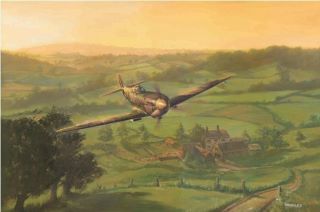
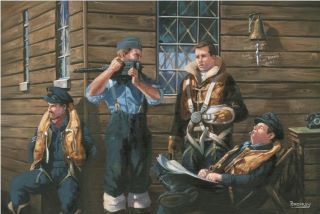
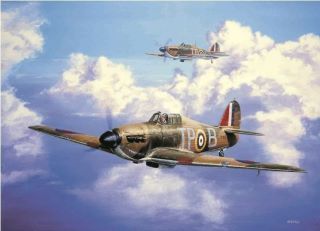
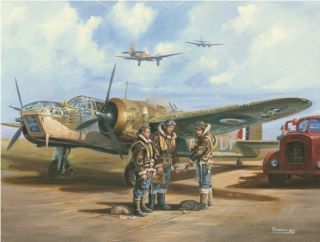
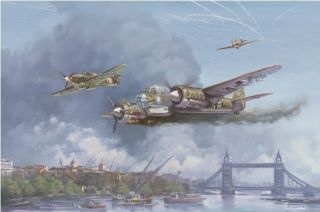
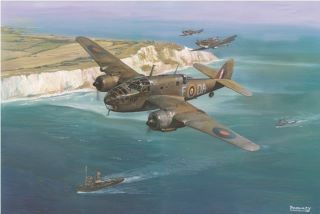
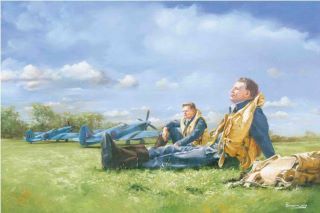
For those of you interested in World War 2 aircraft, (like me!), here is a video which asks the question “Which Aircraft of the Battle of Britain was best?”

Also, for those of you who are in the UK, a new, (free) art exhibition has opened on the 12th of September 2020, running till 28th March 2021, at the RAF Museum in London. It commemorates both men and women war artists in documenting the “war of air and fire”. Details can be found by clicking here.
If you would like to read more details about the Battle of Britain, click here.
"Never in the field of human conflict was so much owed by so many to so few."
- Winston Churchill after the Battle of Britain.
Footnotes
- Courtesy of the The Imperial War Museum, iwm.org
- Courtesy of Military-history.org and Mark Bromley
- Courtesy of Wikipedia

